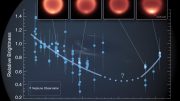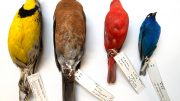
Half of the children with COVID-19-related MIS-C had neurologic symptoms like headaches and hallucinations upon hospital admission.
Half of the children who developed the serious condition associated with COVID-19 called multisystem inflammatory syndrome in children (MIS-C) had neurologic symptoms or signs when they entered the hospital, according to preliminary research released today, April 13, 2021, that will be presented at the American Academy of Neurology’s 73rd Annual Meeting being held virtually April 17 to 22, 2021. Those symptoms included headaches, encephalopathy, and hallucinations.
“With this new inflammatory syndrome that develops after children are infected with the coronavirus, we are still learning how the syndrome affects children and what we need to watch out for,” said study author Omar Abdel-Mannan, MD, of University College London in the United Kingdom and a member of the American Academy of Neurology. “We found that many children experienced neurologic symptoms involving both the central and peripheral nervous systems.”
For the study, researchers reviewed the records of all children under age 18 admitted to Great Ormond Street Hospital in London between April 4, 2020, and September 1, 2020, who met the criteria for multisystem inflammatory syndrome in children.
There were 46 children with an average age of 10. Of those, 24 children had neurologic symptoms or signs that they had not experienced previously. Twenty-four had headaches, 14 had encephalopathy, six had voice abnormalities or hoarseness, six had hallucinations and five had ataxia, or impaired coordination. In addition, three children had problems with their peripheral nerves and one child had seizures.
The children with neurologic symptoms were more likely to need a ventilator and drugs to help stabilize their blood circulation than the children without neurologic symptoms. However, there were no differences in terms of demographics, inflammatory markers, management or short-term outcomes between the two groups.
“Children who develop this condition should definitely be evaluated for neurologic symptoms and longer- term cognitive outcomes,” said Abdel-Mannan. “More studies are needed involving more children and following children to see how this condition changes over time and if there are any longer-term neurocognitive effects.”
Meeting: American Academy of Neurology 73rd Annual Meeting









Be the first to comment on "50% of Kids With Inflammatory Syndrome After COVID-19 Have Neurological Symptoms"